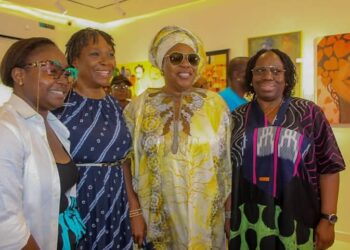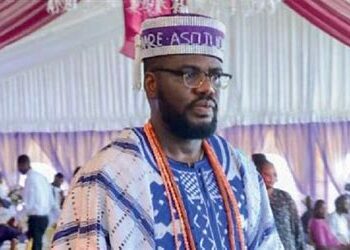For the estimated over 50 million Igbo scattered in all villages, towns and cities of Nigeria as well as around the world, the demand for a restructured Nigeria that guarantees security of life and property, freedom and liberty, equity, justice and development, has a unique significance.
According to Ohanaeze Ndigbo, no other ethnic group has a greater stake in the Nigerian project than the Igbo by virtue of tens of millions of them who live and invest everywhere in Nigeria outside Igbo land. But they are also victims of ethno-religious crisis at every turn.
Consequently, a segment of the Igbo society that has lost hope in the Nigerian dream believes that Nigeria will never work for the Ndigbo, thus necessitating their agitation for an exit from the union. They come under different platforms; the Indigenous People of Biafra (IPOB); Movement for the Actualisation of Sovereign State of Biafra (MASSOB) and the likes.

Regardless, a preponderance of views among Ndigbo is that a restructured Nigeria that works for all remains the best option. It was for that reason that the recently held South East summit on restructuring in Awka, Anambra State was seen as very auspicious.
The absence of four South East governors could not take the shine off the event that was by every inch a huge carnival of some sort. Aside the host governor, Willie Obiano of Anambra who attended the programme; Okezie Ikpeazu (Abia), David Umahi (Ebonyi); Ifeanyi Ugwuanyi (Enugu) and Rochas Okorocha (Imo) all shunned the occasion.
That notwithstanding, arising from the Awka concourse, the position of Ndigbo on the national question aptly tagged “The Ekwueme Square Declaration” was quite clear and resounding.
The propositions were presented by former Governor of Central Bank of Nigeria (CBN), Prof. Chukwuma Soludo and wholly adopted after a motion moved by Senator Enyinnaya Abaribe.
It was seconded by Tobi Okechukwu of the House of Representatives from Enugu State who appealed to reason and fundamental fairness of all Nigerians.
Highlights include that the Igbo still believe in the Nigerian federation but ask that the nation needs a new Constitution; so the 1999 Constitution should be repealed to recognise the six geopolitical zones; voted for rotational presidency of 6-years single term with five Vice Presidents from the rest geopolitical zones.
The Igbo also called for equal number of states per geopolitical zone; including creation of one or more additional states for the South East in addition to expunging Local Governments from Federal Constitution.
Similarly, the summit proposed that state of origin be scrapped and replaced with State of Residence. And that in a case that it cannot be scrapped; any child born in any state in Nigeria shall automatically also have rights of state of origin of the state where he or she was born. Any person that has resided and paid tax in any state in Nigeria for a period of 10years, they said, should also automatically adopt the state as his State of Origin.
To uphold merit, Ndigbo asked that the Federal Character Commission be replaced by Merits and Equal Rights Opportunities Commission, saying this would give every Nigerian the space to attain his or her height.
Other salient recommendations were decentralisation of the Police; that State should be allowed to conduct elections for governorship and State House of Assembly elections, independent candidacy shall be allowed provided the candidate meets a certain minimum criteria as well as that simple majority be scrapped while a candidate must have at least 50perecent of total votes to win election.
The summit said states or regions should be allowed to manage natural resources within their territory.
According to the recommendations; Section 162 of the 1999 Constitution is a negation of the principle of federalism and should be abrogated. In its place, a truly federal system that gives control of resources to the component units and replaces the current system of unconditional transfers with conditional transfers from the centre as follows: “the states will have control over all the natural resources within their territory. Fiscal federalism presupposes the revocation of the Land Use Act of 1978, the Solid Minerals Act as well as the various Petroleum/Gas Acts and amendments since 1969. The right of ownership, control and exploitation of these and other assets should be returned to the states and/or federating units.
“(c) The taxation powers of the various tiers of government should be reviewed to give the federating units greater flexibility and scope to generate revenue internally. d) States within the federating units should collect and keep 50percent of rents, royalties and profit taxes on minerals derived from their states; pay 20percent to the Regional Government, and 30percent to the Federal Government; provided that each tier of government will save at least 5percent of the receipts from natural/mineral resources as Future Generation Fund.( e) The Federal Government should set aside 40percent of revenue collected from States/Regions as a Distributable Pool Account (DPA). The balance of 60percent plus 60percent of its own independent revenues such as customs duties, federal VAT, federal income tax etc will be deployed to its diminished responsibilities. The sharing of DPA should be equitable and should replace the present unconditional revenue allocation to the states and local governments.”
They also pushed among other things that the DPA should be deployed to emergency transfers from the DPA made only to distressed states/zones consequent upon natural and environmental emergencies, such as, floods, erosion, earthquakes, desert encroachment, man-made disasters, conflicts, insurgency and war while the states within a region should collectively decide what percentage of their consolidated revenue they will allocate to the Regional Government for its operations provided that such contributions will not be less than 10 per cent of the respective states’ gross revenue.
Far reaching as the recommendations were, former Commonwealth Secretary General, Emeka Anyaoku though not physically present totally identified with the zone’s position on restructuring.
Anyaoku, whose goodwill message was delivered by former Director General of National Maritime Authority (NMA), Ferdinand Agu however urged the Igbo to be magnanimous by giving consideration to eight-year presidency.
Agu also delivered the unwavering support of the World Igbo Congress (WIC), to the recommendations as presented by Soludo; stressing that they were in sync with the group’s position.
The summit also received the overwhelming support and endorsement of some other regions, namely South-South, North Central and South-West.
The leader of the Pan-Yoruba group, Afenifere, Chief Ayo Adebanjo in his speech, commended Ohanaeze Ndigbo for organising similar summit the South West staged September last year in Ibadan, saying that restructuring was the only uniting factor and that it was for the peaceful coexistence of the people of the country.
He emphasized that the clamour for restructuring which most Nigerians do today was what founding fathers like Dr. Nnnamdi Azikiwe, Chief Obafemi Awolowo; Sir Ahmadu Bello and others fought for to bring Nigeria together as one entity, stressing that the zone strongly supports restructuring under a Nigerian federation.
Adebanjo said “We in Afenifere support Ohanaeze to champion the cause of restructuring not because we love our states but because we love ourselves. We are all under oppression under this constitution, the only thing that can bring peace, cohesion, understanding; collaboration in uniting Nigeria is to restructure Nigeria, without restructuring; they only pay lip service”.
The leader of Pan Niger Delta Elders Forum (PANDEF), Chief Edwin Clark, said that he abhorred the injustice, oppression; inequity going on in Nigeria which according to him would only be resolved by restructuring the system.
He described the resolution of the South-East at the summit as a sacred document which should be made public, calling for unity among the various ethnic groups in the country.
“When we attended national conference in Abuja, it was agreed that a state should be created for Igbo land; they refused to implement the confab report. What you have done today; we all in the South West, South-South, Middle-Belt and other intelligent parts of this country do understand the problem of this country. This resolution is a sacred document; we all support it, let us have it and take it to our people”, Clark stated.
Also, leader of Middle Belt Forum, Air Commodore Dan Suleiman (rtd) commended Ohanaeze Ndigbo for the summit which he said would guide his zone in their forthcoming rally for restructuring, slated for June, in Makurdi, Benue State, maintaining that the various geopolitical zones were fighting a common battle.
Stressing that the Middle Belt had been in the forefront, championing for a united Nigeria, equity and justice, the elder statesman emphasised that the Middle Belt people were not conquered people and wondered why they were being massacred by Fulani herdsmen and urged Ndigbo to always remember them in their prayers.
He said “I was part of NADECO’s agitation for power shift to the south which was achieved, power shifted and today we are talking about restructuring Nigeria for justice and equity to prevail”.
Some personalities from outside South East present at the summit include former Minister of Finance, Chief Olu Falae, immediate past governor of Ondo state; Dr Olusegun Mimiko, retired Federal Permanent Secretary, Godknows Igali, who represented the Bayelsa State Government, former Minister of Information, Prof. Jerry Gana and Prof. Pat Utomi among others.
By and large, a section of the Igbo believes that Ohanaeze should have shifted from its appeal position to make demands.
According to Dr. Chris Aniedobe, a US based intellectual and a representative of Igbo in Diaspora at the summit, “standing in solidarity with the rest of Southern Nigeria, Ohanaeze has to change its tone to a demand tone going forward. More than just a demand tone, Ohanaeze needs to understand that it is time to organise to stare down our compatriots who would not accede to self-determination and show that we are braced for the push back.”








